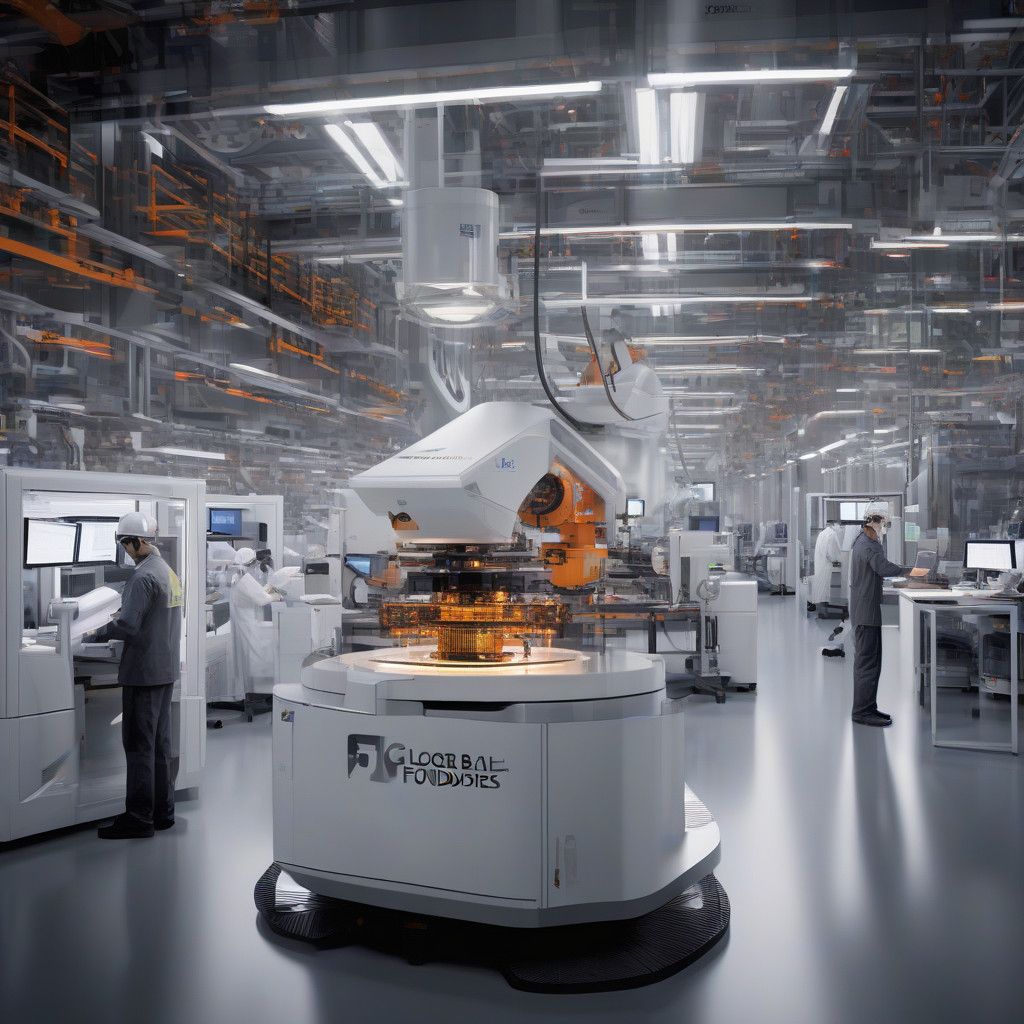The United States government has taken a significant step to enhance its semiconductor industry, providing GlobalFoundries with a $1.5 billion subsidy aimed at boosting chip production in Malta, New York, and Vermont. This initiative is part of a broader strategy to solidify the U.S.’s position in the global semiconductor supply chain, especially as demand surges for critical technologies in various sectors, including automotive, artificial intelligence, and aerospace.
The recent award is not a standalone effort; it follows GlobalFoundries’ substantial pledge of $13 billion over the next decade to strengthen U.S. manufacturing capabilities. This commitment underscores the increasing awareness of the strategic importance of domestic semiconductor production, particularly in the wake of supply chain disruptions witnessed during the COVID-19 pandemic.
Commerce Secretary Gina Raimondo highlighted the urgency behind these developments, emphasizing the need for swift agreement finalizations before the current administration concludes. The funding will be crucial in scaling up technological innovations within GlobalFoundries’ Malta facility. Additionally, New York state has announced its own $550 million contribution, which complements the federal support, reinforcing a collaborative approach to economic growth.
GlobalFoundries’ CEO, Thomas Caulfield, elaborated on the importance of U.S.-manufactured chips, linking their production to both economic viability and national security. He noted that the subsidy is part of the larger $52.7 billion Chips and Science program initiated by the federal government, which aims to bolster semiconductor manufacturing across the nation. Notably, this program has also directed funds toward major players like TSMC, Samsung, and Intel, all competing to advance technological innovation while ensuring supply chain resilience.
The implications of this investment extend far beyond immediate economic benefits. By ramping up domestic production capabilities, the U.S. aims to become less reliant on foreign suppliers, particularly as geopolitical tensions rise and countries grapple with their own semiconductor shortages. Analysts point out that having a robust semiconductor infrastructure is critical not only for maintaining technological leadership but also for safeguarding national security interests.
One practical example of how increased semiconductor production can benefit the broader economy is through its direct impact on the automotive industry. Modern vehicles are becoming increasingly dependent on sophisticated chips for advanced functionalities like automated driving and infotainment systems. The rising demand for electric vehicles (EVs) and the integration of AI technologies into transportation systems create a compelling case for enhancing chip manufacturing capabilities domestically.
Moreover, the jobs generated from the construction, operation, and maintenance of new semiconductor facilities are expected to contribute significantly to local economies. The potential for job creation spans various sectors, from engineering and manufacturing to logistics and supply chain management. As such, this investment could provide substantial economic stimulus in regions where these facilities will be established.
Furthermore, there’s an emerging trend towards technological synergies between the semiconductor industry and other cutting-edge fields. For instance, AI advancements necessitate more powerful and efficient chips to process vast amounts of data in real time. By facilitating growth in the semiconductor sector, the U.S. can ensure it meets the demands of industries poised to shape the future of technology.
In conclusion, the $1.5 billion subsidy awarded to GlobalFoundries marks a decisive moment in the U.S. government’s efforts to regain its foothold in semiconductor manufacturing. The combination of federal and state funding presented in this strategic partnership not only addresses immediate production needs but also sets the stage for long-term economic resilience and technological advancement. As the country navigates an increasingly complex global landscape, investments like these will be crucial for fostering innovation and safeguarding national interests in the semiconductor arena.












